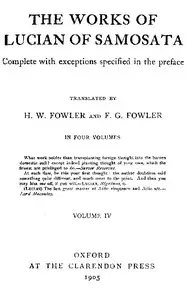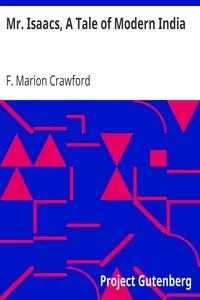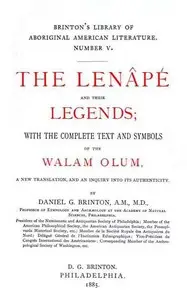"The Works of Lucian of Samosata — Volume 02" by of Samosata Lucian is a collection of philosophical and satirical writings from the 2nd century AD, showcasing the wit and rhetoric of one of the foremost figures in ancient Greek literature. This volume includes various treatises and dialogues that explore themes such as dependency, virtue, the nature of wealth, and the philosophical paths one may choose. A prominent focus is placed on the trials of the scholar, particularly the "dependent scholar," who navigates the complexities of serving wealthy patrons while sacrificing personal freedom and integrity. The opening of this volume introduces the concept of the "dependent scholar," who finds himself caught between the allure of a comfortable life in the service of the wealthy and the degradation that often accompanies this dependence. The speaker, possibly embodying Lucian's perspective, reflects on the hardships faced by those who sell their intellectual prowess for monetary gain, highlighting the irony of how such scholars often remain as impoverished and unfulfilled as those they sought to escape. Through vivid metaphors and engaging dialogue, Lucian critiques the societal expectations surrounding wealth and servitude while prompting readers to consider the true cost of such ambitions. This thoughtful examination continues throughout the text, setting the stage for an exploration of the rival philosophies that shape one's approach to life and happiness. (This is an automatically generated summary.)

The Works of Lucian of Samosata — Volume 02
By of Samosata Lucian
"The Works of Lucian of Samosata — Volume 02" by of Samosata Lucian is a collection of philosophical and satirical writings from the 2nd century AD, s...
Genres
Released
2004-09-01
Formats
epub3 (images)
epub (images)
mobi (images)
mobi
epub
Free Download
Overview
About the Author
Lucian of Samosata was a Hellenized Syrian satirist, rhetorician and pamphleteer who is best known for his characteristic tongue-in-cheek style, with which he frequently ridiculed superstition, religious practices, and belief in the paranormal. Although his native language was probably Syriac, all of his extant works are written entirely in ancient Greek.
Total Reviews
10.0k
Total reviews from Goodreads may change
















